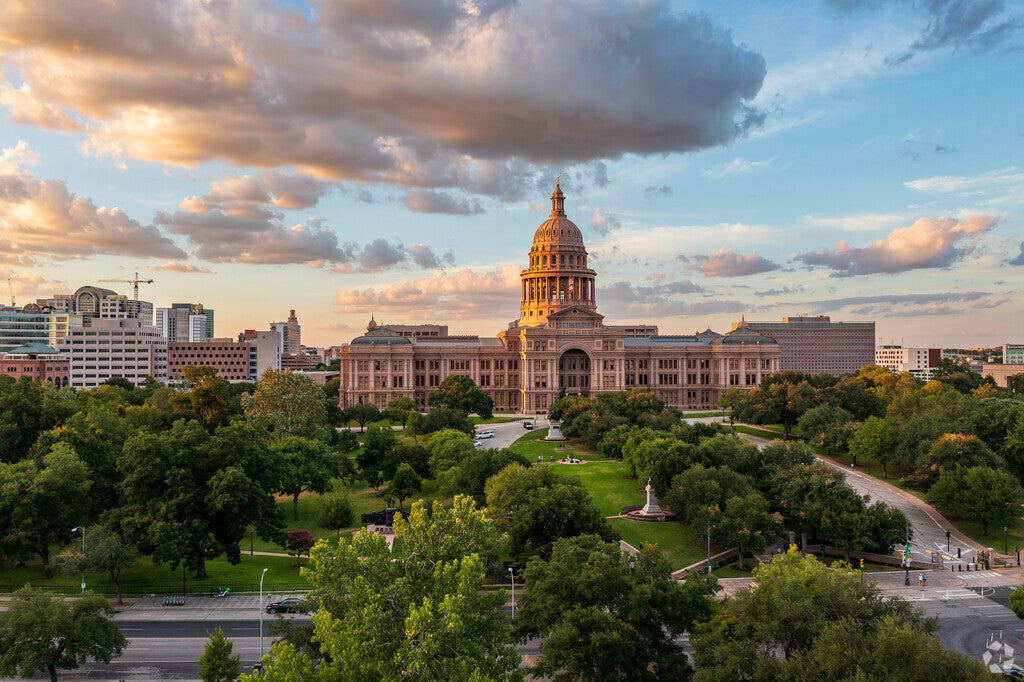
Rolling Through Time: The History of Cigars in Texas
Share
Rolling Through Time: The History of Cigars in Texas
Texas, with its rich tapestry of history and culture, has a lesser-known yet intriguing connection to the world of cigars. The story of cigars in Texas weaves through eras of exploration, settlement, and modern development, reflecting the broader narrative of the state itself. From early encounters with tobacco to the rise of cigar culture, here’s a journey through the history of cigars in the Lone Star State.
Early Beginnings: The Spanish and Native American Influence
The history of cigars in Texas begins in the 16th century with the arrival of Spanish explorers. Tobacco was first introduced to Europeans by indigenous peoples of the Americas, including the Native American tribes in the region that is now Texas. When Spanish explorers like Hernán Cortés arrived, they encountered Native American use of tobacco in various forms, including smoking it in pipes.
As the Spanish established missions and settlements, they brought tobacco with them, introducing it to the early settlers. This tobacco, however, was not yet being rolled into cigars but was used more broadly in smoking and snuff.
19th Century: The Rise of Tobacco Cultivation
The 19th century saw a significant shift in Texas tobacco history. As settlers moved into the region and agriculture expanded, tobacco cultivation became a part of Texas’s agricultural landscape. By the mid-1800s, tobacco farming had gained traction, particularly in the eastern parts of Texas where the climate was more suitable for growing the plant.
Cigars began to appear more prominently in Texas around this time. The growing popularity of cigars in the United States influenced local markets, and Texan entrepreneurs began to explore the potential of the cigar industry. Although the Texas cigar industry was still in its infancy, it began to establish a foothold.
Early 20th Century: The Growth of Local Cigar Manufacturers
The early 20th century was a period of growth and innovation for Texas cigar manufacturing. Cities like Houston, Dallas, and San Antonio became centers for cigar production and distribution. Local manufacturers began to make a name for themselves by creating cigars that appealed to regional tastes.
One notable figure was the founder of the Texas Cigar Company, which emerged as a significant player in the local cigar scene. These local manufacturers often used tobacco grown in Texas or nearby states, contributing to the development of a unique Texan cigar style.
Mid to Late 20th Century: Cigar Culture Evolves
As the 20th century progressed, cigar culture in Texas continued to evolve. The mid-century period saw the rise of larger, national cigar brands, but Texas maintained a strong local cigar culture. The state became known for its unique cigar lounges and bars, where enthusiasts could enjoy fine cigars in a social setting.
Cigar events and festivals started to become more common in Texas, celebrating the craft and culture of cigars. These events drew attention from across the country and even internationally, putting Texas on the map as a destination for cigar lovers.
21st Century: A Cigar Renaissance
In recent decades, Texas has experienced a resurgence in cigar culture. The state’s diverse population and appreciation for quality craftsmanship have led to a flourishing of boutique cigar brands and high-end lounges. Texas is now home to a variety of premium cigar shops, each offering a curated selection of fine cigars from around the world.
Austin, in particular, has emerged as a hotspot for cigar enthusiasts, with its vibrant social scene and a number of well-regarded cigar lounges. The city’s dedication to maintaining a high standard of quality and service in its cigar offerings has earned it a reputation as a top destination for cigar aficionados.
Modern-Day Cigar Culture in Texas
Today, Texas is a dynamic hub for cigar culture. The state’s cigar lounges, events, and festivals showcase a rich blend of local and international influences. From upscale lounges in Houston and Dallas to artisanal cigar makers in Austin, Texas offers something for every cigar enthusiast.
Local cigar manufacturers continue to thrive, crafting cigars that reflect the state’s unique character and heritage. The tradition of cigar making in Texas is celebrated through a variety of events, including cigar and whiskey pairings, and educational sessions on the art of cigar rolling.
Conclusion
The history of cigars in Texas is a story of adaptation and growth, reflecting the broader narrative of the state itself. From early encounters with Native American tobacco practices to the rise of local cigar manufacturers and the modern-day renaissance, Texas has played a significant role in the evolution of cigar culture.
As Texas continues to embrace its rich heritage and celebrate its diverse influences, the story of cigars in the state remains a testament to its enduring spirit of innovation and craftsmanship. So, whether you’re lighting up a classic Texan cigar or exploring the latest boutique offerings, you’re participating in a tradition that has deep roots and a bright future in the Lone Star State.
